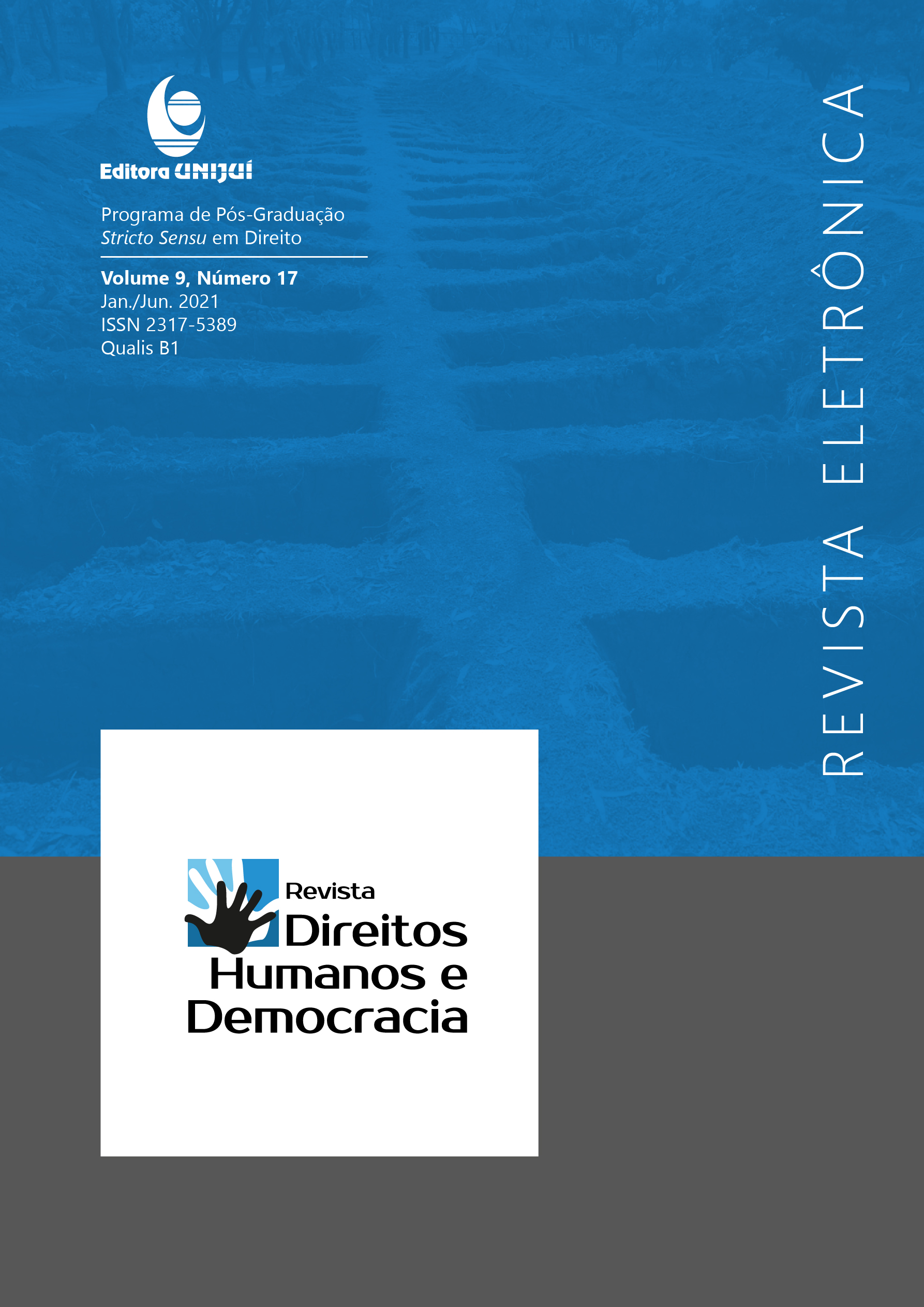WARATIAN MEDIATION AS A FORM OF CONSOLIDATION OF MERCOSUR
THE SEARCH FOR AN EFFECTIVE SOCIAL INTEGRATION
DOI:
https://doi.org/10.21527/2317-5389.2021.17.9616Keywords:
Harmonization, Culture of Peace, Mediation in Luis Alberto Warat, Mercosur, Conflict TransformationAbstract
The increasingly complex complexity of Latin American society makes us rethink the model of integration used by the European Union, since this has already proved to be inconsistent with the reality of the South American states. In the meantime, Luis Alberto Warat teaches that it is necessary that there be an emancipation of the Right, so that it recovers the sensibility that the rationalism has buried. The core of emancipation, therefore, would be alterity, and the possible path to emancipatory success would be mediation. Thus, it is hoped in this research to analyze how mediation, in Luis Alberto Warat, could function as a possible instrument for promoting social pacification, and also how it could solidify MERCOSUR, how proces of social integration. Therefore, we chose to carry out the present research from the perspective of a qualitative approach, through consultations in doctrine. It is also highlighted here, as one of the main theoretical contributions used, the studies of Luis Alberto Warat, especially in what concerns mediation.
Downloads
Published
How to Cite
Issue
Section
License
By publishing in the Revista Direitos Humanos e Democracia, authors agree to the following terms:
Articles are licensed under the Creative Commons Atribuição 4.0 Internacional (CC BY 4.0), which allows:
Share — copy and redistribute the material in any medium or format;
Adapt — remix, transform, and build upon the material for any purpose, including commercial use.
These permissions are irrevocable, provided the following terms are respected:
Attribution — authors must be properly credited, with a link to the license and indication of any modifications made;
No additional restrictions — no legal or technological measures may be applied that restrict the use permitted by the license.
Notices:
The license does not apply to elements in the public domain or covered by legal exceptions.
The license does not grant all rights required for specific uses (e.g., image rights, privacy, or moral rights).
The journal is not responsible for opinions expressed in the articles, which remain the sole responsibility of the authors. The Editor, with the support of the Editorial Committee, reserves the right to suggest or request modifications when necessary.
Only original scientific articles presenting research results of interest, not previously published or simultaneously submitted to another journal with the same purpose, will be accepted.
References to trademarks or specific products are intended solely for identification purposes and do not imply any promotional endorsement by the authors or the journal.
License Agreement: Authors retain copyright over their articles and grant the Revista Direitos Humanos e Democracia the right of first publication.













